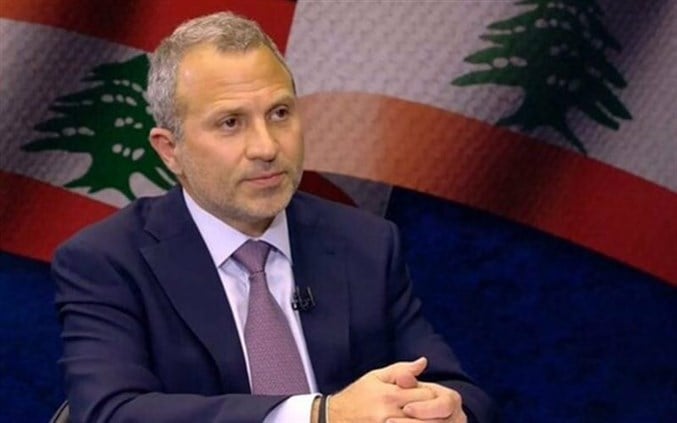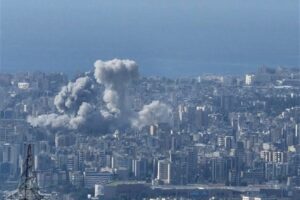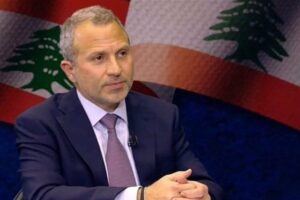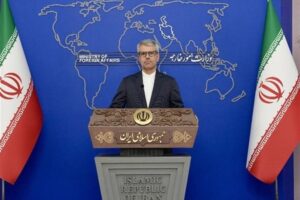In an interview with journalist Sami Kleib on Al-Ghad, MP Gebran Bassil, head of the Free Patriotic Movement (FPM), reaffirmed his rejection of sectarian strife and isolation, emphasizing the importance of a ceasefire to protect Lebanon’s sovereignty. He clarified that while his party is not aligned with Hezbollah on state-building, they support Hezbollah’s efforts to defend Lebanon against Israeli aggression.
“I would be glad if Israel didn’t defeat or occupy Lebanon. We support the Resistance in preventing such an occupation. However, Lebanon cannot restore its power of deterrence, as this power has failed to prevent destruction and displacement in the past,” Bassil stated.
Hezbollah’s Role and Regional Dynamics
Bassil expressed his belief in the Axis of Resistance’s capabilities, acknowledging that they have not yet deployed their full arsenal. He suggested their restraint is aimed at minimizing damage to Lebanon’s infrastructure. Nevertheless, he warned of Israel’s ability to target and destroy specific sites if provoked.
He criticized the “unity of fields” strategy, stating, “I am against the unity of fields. It is harmful to Lebanon.” He argued that Lebanon cannot recreate the equation of deterrence due to changing internal and external conditions, which previously allowed Hezbollah to build its military strength with supplies from Iraq and Syria. Bassil questioned whether those favorable circumstances could ever be replicated.
He also noted discussions between the US and Israel about potential Russian intervention to arm Hezbollah and raised concerns about Lebanese citizens’ willingness to endure another war. “Will the Lebanese people accept reliving this experience?” he asked, underscoring the importance of local consensus.
Hezbollah’s Popular Legitimacy and the Ongoing War
Bassil argued that while Hezbollah has lost some popular legitimacy as a protector of Lebanon, it continues to successfully defend the country. He characterized the current conflict as another Israeli war against Lebanon, marked by increased Iranian involvement. According to Bassil, Israel aims to eradicate Hezbollah’s resistance capabilities while isolating the Shiite community.
He supported the implementation of UN Resolution 1701 to halt hostilities and achieve a permanent ceasefire, but warned against surrendering to Israeli security demands. “I want an immediate ceasefire, but this does not mean surrendering, allowing violations of Lebanon’s sovereignty, or accepting aggression,” he said.
Bassil criticized the inefficiency of the unity of fields strategy, pointing out that Iran has prioritized its national interests over retaliating against Israel for its actions in Lebanon. He stated that Hezbollah’s deterrence strategy—targeting civilians and infrastructure symmetrically—has not succeeded.
He confirmed that Iran continues to back Hezbollah, viewing it as a “red line,” but emphasized that Iran has not fully honored the unity of fields concept. Bassil recalled a meeting with an Iranian delegation, during which they advised patience and assured him of Hezbollah’s eventual victory. Despite expressing his support for Hezbollah’s defense efforts, Bassil said he had conveyed his belief that the war was not in Lebanon’s interest.
Advising Hezbollah and Local Repercussions
Bassil revealed that he had advised Hezbollah Secretary-General Hassan Nasrallah against entering the war, warning that it would lead to accusations of provocation rather than defense and result in a loss of public support. He highlighted that Israeli Defense Minister Yoav Gallant had ruled out a ceasefire until Israel’s objectives were achieved. Bassil stressed that all scenarios presented to Hezbollah’s leadership and Speaker Nabih Berri mirrored the devastation in Gaza.
He accused Israeli Prime Minister Benjamin Netanyahu of a strategic error in launching a ground offensive in Lebanon, asserting that Israel would fail to occupy Lebanese territory. Any ceasefire promises were only manipulations by Netanyahu, former American President Joe Biden, and his administration. However, he acknowledged that corruption within Lebanon’s state institutions has weakened both governance and resistance, citing security breaches as a critical vulnerability.
Leadership Roles and Sectarian Balance
Bassil praised Speaker Nabih Berri for his resilience and commitment to resisting Israeli aggression, stating that Berri would not end his political career by surrendering to Israel. He noted the differing capacities of Caretaker Prime Minister Najib Mikati, arguing that Mikati should not be burdened with responsibilities beyond his capabilities.
Addressing Donald Trump’s return to the US presidency, Bassil expressed skepticism about significant changes in policy. However, he noted Trump’s practical approach to finding solutions and his opposition to unnecessary wars. Bassil recounted contacting Trump before his election to discuss the need for a lasting solution to Lebanon’s challenges, including its economic collapse and the blockade imposed since 2017.
“Trump is clearly against wars and the US’ financing of Ukraine, Europe, and NATO wars, and will surely not finance Israel’s extremist government to launch wars. He wants to find a solution,” said Bassil. According to him, Trump has committed to stopping Lebanon’s destruction and torment, Identifying a solution while safeguarding Lebanon’s unique status — the partnership between the Lebanese people that is the basis of our existence. That was an election promise. We are hopeful Bassil said and are willing to giving it a chance.
Bassil stressed the need for a fair and inclusive peace in the region, calling for the establishment of a Palestinian state and the restoration of Lebanon’s rights. He endorsed the Arab Peace Initiative and highlighted the importance of Lebanon and Syria in any comprehensive resolution. Reflecting on the war in Gaza, Bassil noted the resilience of the Palestinian people and the widespread support among Arab youth.
Bassil addressed the Agreement with Hezbollah, and affirmed it did not mention the liberation of Palestine or Al-Quds, nor did it include an offensive strategy.
“I clearly stated that If Israel attacked Lebanon, I would support the Resistance, Hezbollah, and Lebanon, against Israel, regardless of our disagreements on State-building, partnership, and the unity of fields. Some provisions in our Agreement with Hezbollah have not been implemented. However, they are still valid if Hezbollah decides to opt for the State, partnership, and defense strategy, after the war.
Bassil rejected calls from the Lebanese Forces to hold a parliamentary session without Shiite representation, warning that such actions could deepen sectarian divides and lead to civil strife. He clarified his stance on sovereignty, freedom, and unity, criticizing the Lebanese Forces for their historical alliances with Hezbollah while affirming his commitment to protecting all sects, including Shiites and Christians.
“When I said I supported Geagea’s ambitions, but not his projects, I meant those mad projects that would lead to a civil war”.
We call for sovereignty and freedom. We did not grant Hezbollah legitimacy; rather, it was the Lebanese Forces who allied with them during the 2005 parliamentary elections and within the government. They were the ones who legitimized Hezbollah by entering the government as early as 1990. By the time we came to power, Hezbollah already held legitimacy both within the government and among the people,” Bassil explained.
He criticized Geagea’s call for holding a parliamentary session without Shiite representation, dismissing it as more than just a “slip of the tongue.” Instead, he described it as an illusory belief that the post-war situation would allow such a move. Bassil expressed hope that Geagea’s perspective would evolve to focus on the realities of saving the country, electing a president, and developing a cohesive national defense strategy.
On the matter of arms, Bassil emphasized that such weapons should ultimately be under state control rather than discarded outright.
“The world takes interest in us because of these weapons,” he stated.
Bassil feared any internal sedition, as he considers it as part of Israel’s plan by targeting the Shiites, displacing them and inciting problems among the Lebanese people.
Presidential Elections and Institutional Integrity
Bassil rejected extending the term of the army commander or electing him as president, arguing that this would politicize the military and undermine its hierarchy. He emphasized the need to protect the Lebanese army from political interference, suggesting that any commander seeking the presidency should first retire from military service.
The Riyadh Summit
Bassil described the Riyadh summit as a positive step, noting its inclusion of Iran, support for a two-state solution, and provisions to safeguard Lebanon. He highlighted Saudi Arabia’s leadership role, asserting that Lebanon naturally serves as a bridge of communication.
Bassil concluded by reaffirming his belief in Lebanon’s unique societal partnership, which he described as the foundation of the nation’s existence.




